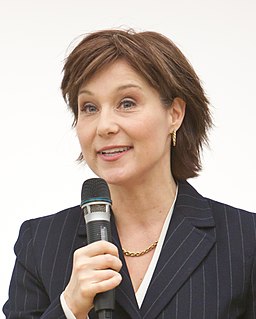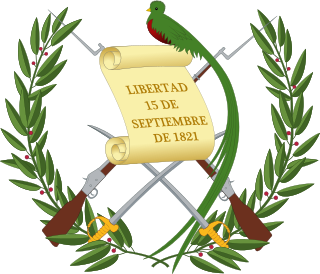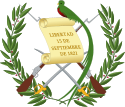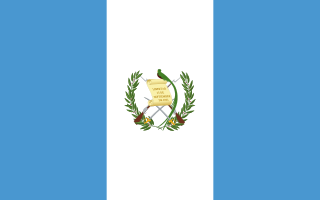
The history of Central America is the study of the region known as Central America.

The Canadian federal election of 1921 was held on December 6, 1921, to elect members of the House of Commons of Canada of the 14th Parliament of Canada. The Union government that had governed Canada through the First World War was defeated, and replaced by a Liberal government under the young leader William Lyon Mackenzie King. A new third party, the Progressive Party, won the second most seats in the election.
In political science and political history, a realigning election is a set of sharp changes in issues, party leaders, regional and demographic bases of power of political parties, and the structure or rules of the political system, such as voter eligibility or financing. The changes result in a new political power structure that lasts for decades, replacing an older dominant coalition. Scholars frequently invoke the concept in American elections and occasionally those of other countries. US examples include the 1896 presidential election, when the Republican Party (GOP) became dominant, and the 1932 election when the Democratic Party became dominant.

José Rafael Carrera Turcios was the president of Guatemala from 1844 to 1848 and from 1851 until his death in 1865, after being appointed President for Life in 1854. During his military career and presidency, new nations in Central America were facing numerous problems: William Walker's invasions, liberal attempts to overthrow the Catholic Church and aristocrats' power, the Civil War in the United States, Mayan uprising in the east, Belize boundary dispute with England, and the wars in Mexico under Benito Juarez. This led to a rise of caudillos, a term that refers to charismatic populist leaders among the indigenous people. Many regional and national caudillos were interested in power for their own gain. Carrera was an exception as he genuinely took the interests of Guatemala's Indian majority to heart.

Tiburcio Carías Andino was a Honduran military man with a reputation as a strongman. He founded the National Party of Honduras in 1918, and was President of Honduras twice; briefly in 1924 and from 1933 to 1949.

The 26th Manitoba General Election was held on May 14, 1959 to elect 57 members to the Legislative Assembly of Manitoba, Canada. It resulted in a majority victory for the incumbent Progressive Conservatives under the leadership of Premier Dufferin Roblin. This was the first time since the 1914 election that the Tories won an outright majority in the province.
State elections were held in South Australia on 15 September 1979. All 47 seats in the South Australian House of Assembly were up for election. The incumbent Australian Labor Party led by Premier of South Australia Des Corcoran was defeated by the Liberal Party of Australia led by Leader of the Opposition David Tonkin.
The Ashburton by-election, 1908 was a by-election held in England on 17 January 1908 to elect a new Member of Parliament (MP) for the British House of Commons constituency of Ashburton in Devon.

The 40th British Columbia general election took place on May 14, 2013, to elect the 85 members of the 40th Parliament of British Columbia to the Legislative Assembly in the Canadian province of British Columbia. The British Columbia Liberal Party formed the government during the 39th Parliament prior to this general election, initially under the leadership of Premier Gordon Campbell then after his resignation, Christy Clark. The British Columbia New Democratic Party under the leadership of Carole James, and then Adrian Dix, formed the Official Opposition. The BC Green Party under the leadership of Jane Sterk and the BC Conservative Party under John Cummins were also included in polling, although neither party had representation at the end of the 39th Parliament.

General elections were held in Guatemala on 3 November 1985, with a second round of the presidential elections taking place on 8 December. The presidential election resulted in a victory for Vinicio Cerezo, who had received $650,000 towards his campaign from media owner Remigio Ángel González. The Congressional elections resulted in a victory for Cerezo's Guatemalan Christian Democracy, which won 51 of the 100 seats. Voter turnout was 69.3%.

General elections were held in Guatemala on 11 November 1990. with a second round of the presidential election held on 6 January 1991. The presidential election resulted in a victory for Jorge Antonio Elías of the Movement of Action in Solidarity, whilst the National Centre Union won the Congressional elections. Voter turnout was 56.4% in the elections on 11 November 1990 and 45.2% in the elections on 6 January 1991.

Parliamentary elections were held in Guatemala on 18 December 1955. The result was a victory for the National Democratic Movement, which won 58 of the 66 seats in Congress.

General elections were held in Guatemala between 6 and 8 February 1931. In the presidential election Jorge Ubico was elected unopposed, after the remaining sector of the old Liberal Party did not object to his candidacy, whilst the Conservative Party was too disorganised and discredited from the Lázaro Chacón González era to put forward a candidate. Ubico's Progressive Liberal Party, formed by a union of the two wings of the divided Liberal Party also won the parliamentary election unopposed.

General elections were held in Guatemala on 5 December 1926. The presidential election resulted in a victory for Lázaro Chacón González, who received 88.6% of the vote. Whilst the elections were rigged, the Progressive Liberal Party did manage to win some seats in the Congress.

Presidential elections were held in Guatemala in July 1904. The result was a victory for Manuel Estrada Cabrera, who received all but three of the national votes. He assumed the presidency on 15 March 1905.

Parliamentary elections were held in Guatemala in December 1925. The result was a victory for the Liberal Party, which won all 69 seats. The party faced serious opposition in only fifteen constituencies. In Guatemala City the Liberal received 3,289 votes, the Progressive Liberal Party 506 and the Conservative Party 178. The PLP claimed that they had won 90% of the vote, but that the Liberal government had discounted votes against them.

Vicente Cerna y Cerna was president of Guatemala from 24 May 1865 to 29 June 1871. Loyal friend and comrade of Rafael Carrera, was appointed army's Field Marshal after Carraera's victory against Salvadorian leader Gerardo Barrios in 1863. He was appointed Carrera's successor after the caudillo's death in 1865 even though Guatemalan leaders would have preferred Field Marshal José Víctor Zavala.

Presidential elections were held in Guatemala in January 1892. The result was a victory for José María Reina Barrios.















